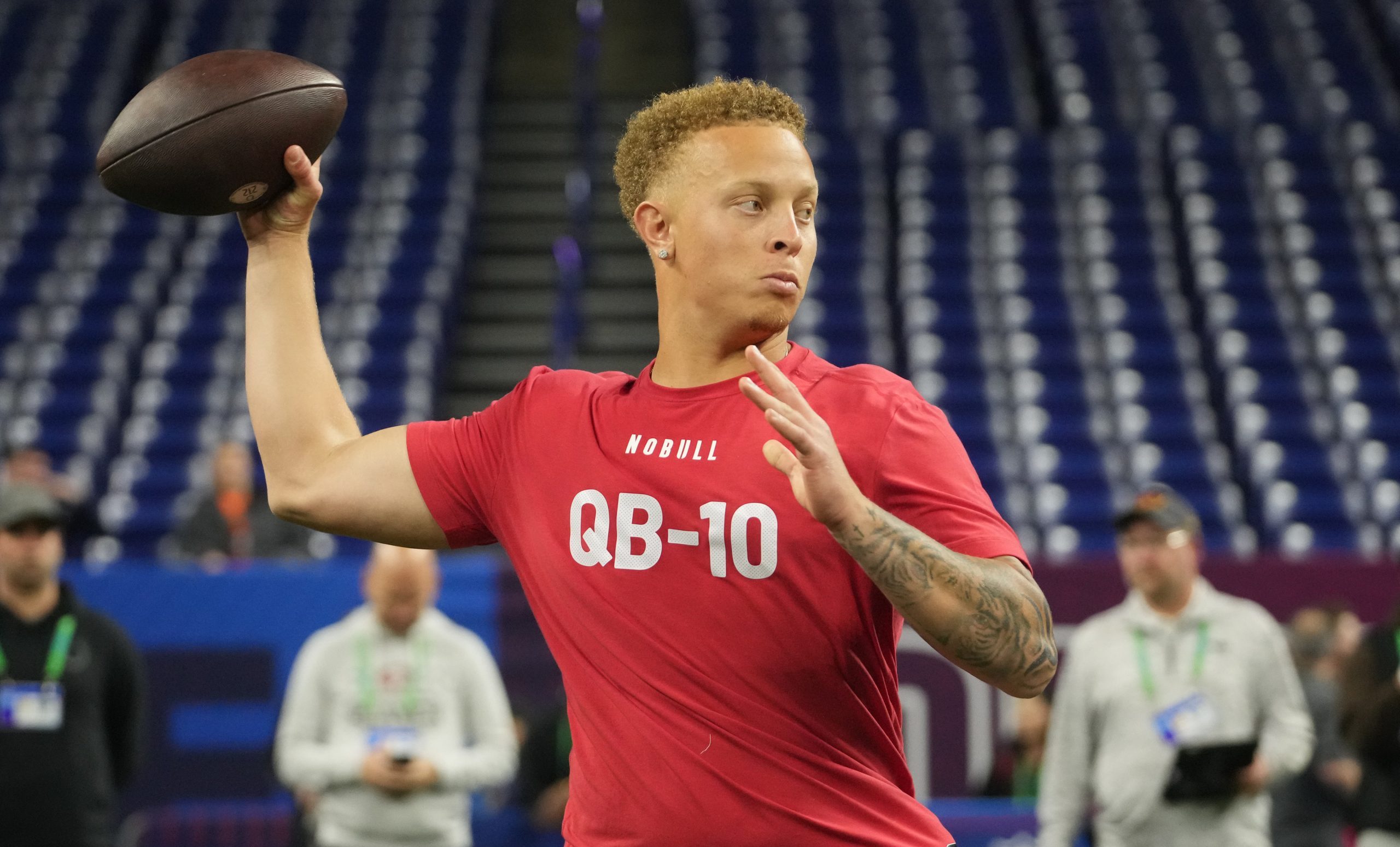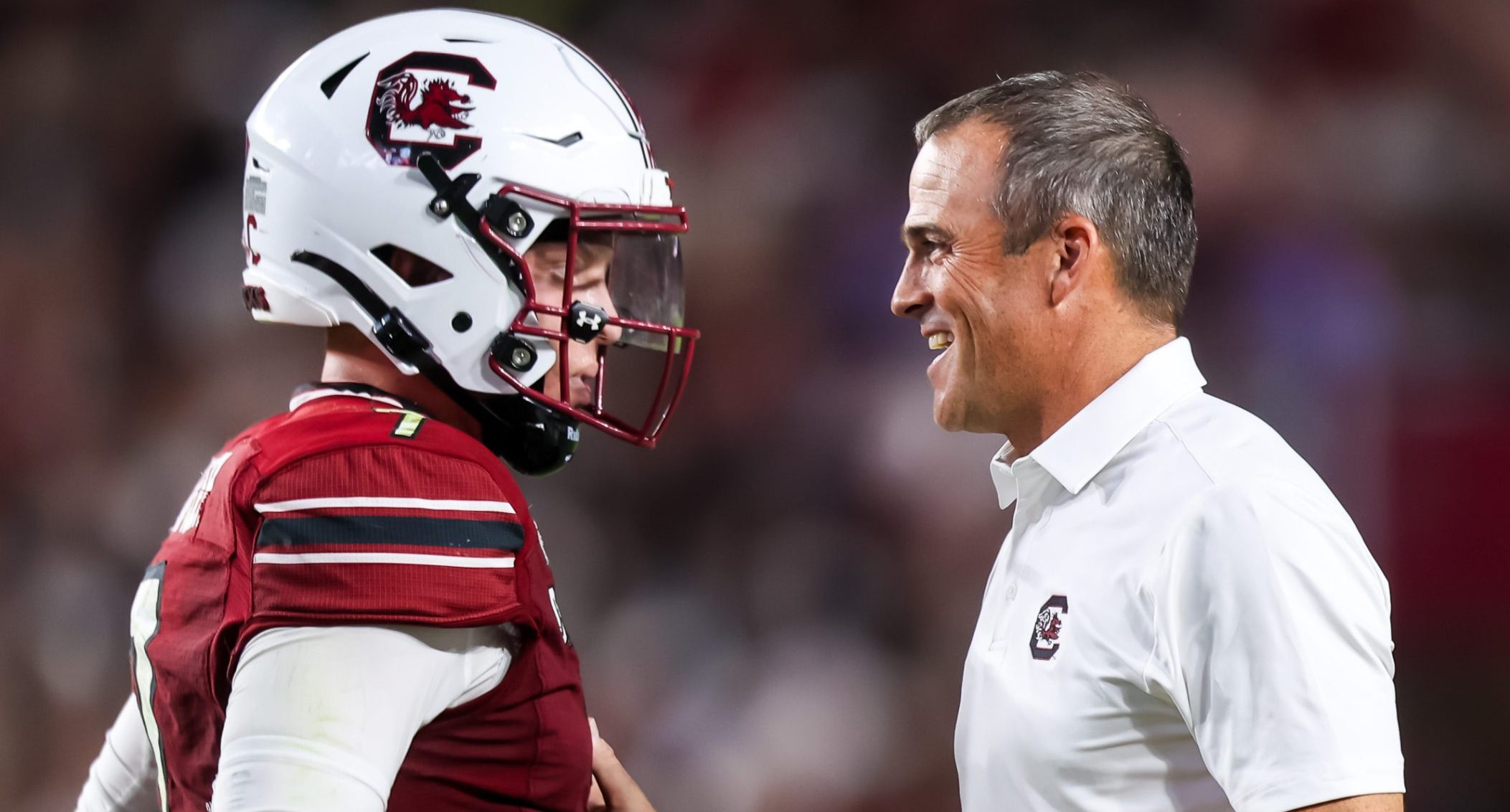Many Major League Baseball players don’t know what it’s like to talk to the media, and it can be an adjustment for some—even the game’s biggest stars.
Appearing on an upcoming episode of the Awful Announcing podcast, which will be released on Friday, ESPN’s Buster Olney shared that his favorite example of a player adjusting to the media and blossoming in that setting was former San Francisco Giants catcher Buster Posey.
The seven-time All-Star catcher and three-time World Series champion made his MLB debut in 2009. In his first full season, one of the best backstops of his generation earned a World Series ring, but he also earned a reputation as a “jerk” because he’d only stay for two minutes in front of his locker and talk to reporters.
“You know how catchers are; they’re viewed as the go-to person, especially after a great pitching performance,” Olney told host Jessica Kleinschmidt. “And that whole World Series, I was hearing it, ‘God, Buster’s a jerk. What a jerk.’ And I mentioned it to his representative when the World Series was over, like, ‘Boy, you know, just going to give you some feedback that Buster — who I hadn’t spoken to at that point — they thought he was a jerk.'”
That led to Posey’s representation asking Olney if he wouldn’t mind talking to the young player about it. Within five minutes, Olney gets a phone call, and on the other end is San Francisco’s cornerstone position player, who is intrigued by what the ESPN MLB reporter is hearing.
According to Olney’s retelling of events, Posey was confused and asked what Olney’s colleague in the media expected of him.
“And I walked through how look, if you’re a catcher in the postseason, there’s wave after wave after wave of reporters, and they don’t share the quotes,” said Olney. He might get asked the same question six times because they wave cycle through. And I told him that, and he was like, ‘No one told me that.’ He had no idea that was the culture.”
Olney said he gave Posey the example of Bengie Molina, who would come into the clubhouse, grab a bottle of water, and put a towel over his shoulder, and he knew that he would have to deal with that.
“I think for a lot of players, just the learning process,” continued Oleny, “and he was great after that.”
Despite being just a second-year player fresh off a World Series win, Posey displayed maturity by proactively reaching out to Olney after his agent’s suggestion. This willingness to learn media relations transformed him into one of the most media-savvy players of his generation.
“I heard all this complaining, and my sense of him from talking to Bruce Bochy, his manager, was, ‘Yeah, Buster’s a great guy,” said Onley. And other teammates are like, ‘Buster’s a great guy,’ and that was completely opposite from the feedback I was getting from producers who were walking with cameras. And Posey in their eyes, ‘He blew us off.’ It’s just that he wasn’t aware. And I think we have to remember that, for a lot of the players, especially in the postseason, is the first time they go through something like that.”
The full episode of The Awful Announcing Podcast with Buster Olney will be released Friday morning. Subscribe to the show on Apple Podcasts, Spotify, and wherever you get your podcasts. For more content, subscribe to AA’s YouTube page.







